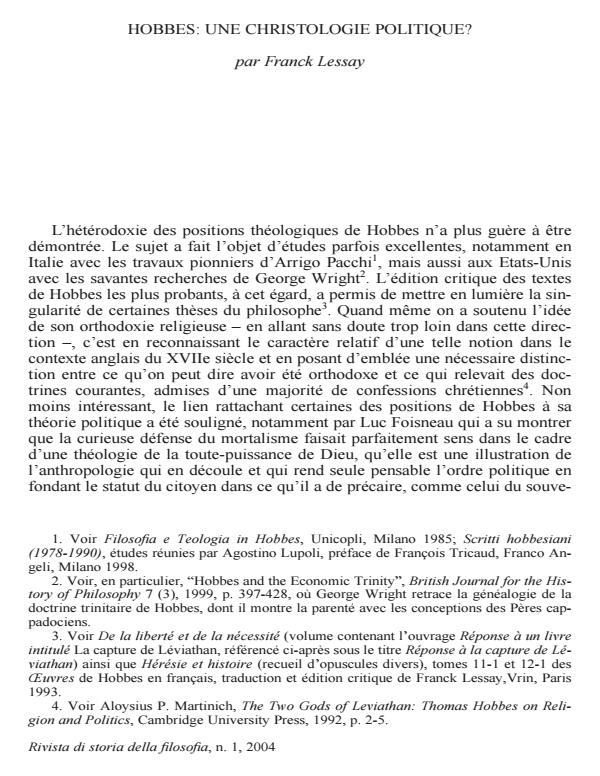Hobbes: une christologie politique?
Journal title RIVISTA DI STORIA DELLA FILOSOFIA
Author/s Franck Lessay
Publishing Year 2004 Issue 2004/1 Language Italian
Pages 22 P. File size 93 KB
DOI
DOI is like a bar code for intellectual property: to have more infomation
click here
Below, you can see the article first page
If you want to buy this article in PDF format, you can do it, following the instructions to buy download credits

FrancoAngeli is member of Publishers International Linking Association, Inc (PILA), a not-for-profit association which run the CrossRef service enabling links to and from online scholarly content.
The striking similarity between the position of Hobbes’s political sovereign on earth now and the position of Christ following His return after the Last Judgment is the final insight of many contained in Franck Lessay’s trenchant essay. Pursuing several lines of analysis into Hobbes’s ecclesiology, Lessay seeks to show its singularity and radicalism vis-à-vis any other contemporary position. The constant attempt to undercut any pretended independence of the church from the civil government is characteristic of Hobbes’s approach, and in this he is far more Erastian certainly than Laud or also Hooker. An extended focus upon Hobbes’s doctrine of the Trinity yields several important insights regarding the central role of the Christ, as Hobbes understood it, as well as the merely commemorative meaning of the sacraments established by Him. As in other articles in this section, Lessay shows important links between Hobbes’s theology and his politics.
Franck Lessay, Hobbes: une christologie politique? in "RIVISTA DI STORIA DELLA FILOSOFIA" 1/2004, pp , DOI: